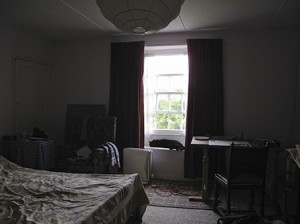The artist and water scientist Antony Lyons has just copied me into an email to our mutual friend Simon Read – one of the instigators of the recent Activating The Gap event at Middlesex – an event I’ve written about previously here – that aimed to promote multi-disciplinary and multi-constituency work that includes the arts in environmental contexts. Antony wants, as I would imagine anyone who attended that event would do, to encourage Simon and his partners to build on what they have begun. In particular he urges Simon to make the concept “into something substantial, and enduring”. This is in part animated by an acute sense of how difficult it can be to use the impetus of such events to move things forward. As Antony rightly adds, he and I missed the opportunity to build on the evident energy of the Catchment workshop we put together out of initiatives we were trying to develop with Steven Sodek in Bristol before his resignation from the Council there, and suggests that the Activating The the Gap event “could develop into a London – Bristol – Falmouth nexus”. But, as he also notes, “there are of course lots of ‘players’”. I’m not sure whether this isn’t part of the problem. Although I have an encouraging sense of networks being extended and alliances forged, I worry about where the funding to turn these into a substantial initiative is going to come from.
Obviously I’m very pleased to hear from the eco-artist Cathy Fitzgerald that she has recently met Liz Adamson and Graeme Todd from Polarcap[1] in Ireland, and that she is going to meet Tim Collins and Reiko Goto during a stop-off in Edinburgh on her way to the Invisible Scotland event in Dundee at the beginning of August.. [2] As someone who combines being a doctoral student, a Green Party activist and eco-artist focusing on forests – she manages a small one of her own – she obviously needs to be making these kinds of contacts. We also clearly need more such committed and energetic people. But how is that commitment and energy to be directed so that it has the best possible effect?
I’m aware of just how hard it is for people like Simon, Liz and Graeme to take up the demands of pushing forward in practical ways to develop multi-disciplinary and multi-constituency ecological work that includes the arts in addition to teaching, research, their creative practices and the innumerable demands of everyday life. Artists prepared to work to provide an acceptable face for the shadowy world of the medical techno-science industry have the economic clout of bodies like the Welcome Trust and all the tacit support of various lobbying organizations/”press agencies” behind them. But where is the equivalent support for the multi-disciplinary, multi-constituency thinking that animates the best eco-art?
It’s almost certainly not going to come from the universities themselves, no matter what individual academics are managing to achieve (often despite, rather than with the support of, their institutional managers). As Professor Ferdinand von Prondzynski, Principal and Vice-Chancellor of Robert Gordon University, has indicated that while universities are supposed to be the prime generators of ‘new knowledge’ in our culture, they are currently among its most reactionary and conservative institutions.[3] This is a situation that he also very properly links to the fact that both their pedagogy and realpolitik (as opposed to their public rhetoric) are almost entirely determined by a professional and academic status quo that is dependent for its power and influence on the perpetuation of disciplinary thinking.[4] Add to that the profoundly reactionary and reductive government interventions provided by the likes of Michael Gove and the struggle to build a serious consensus on the basis of such initiatives as have been begun looks like being very long and hard indeed.
The next gap we need to activate then is that between the potential identified and action initiated by the people mentioned her and others like them and those with the ability to link them to the funds necessary to help develop that potential – an equivalent to the Welcome Trust for the arts and ecological sciences if you like.
[3] von Prondzynski, F http://universitydiary.wordpress.com/about/ (accessed 10/11/2012)
[4] von Prondzynski, F (2010) A post-disciplinary academy? http://universitydiary.wordpress.com/2010/10/14/a-post-disciplinary-academy/ (accessed 10/11/2012)
